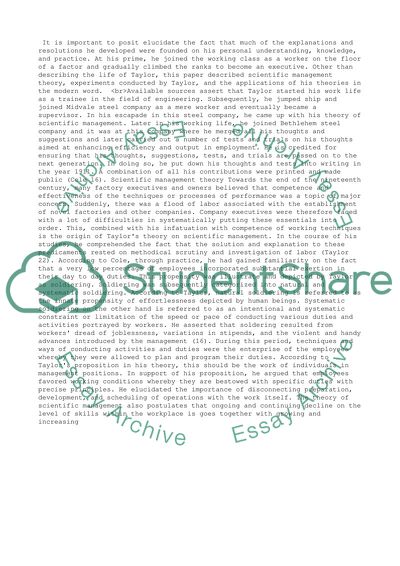Cite this document
(“Frederick Winslow Taylors Life. Scientific management theory Research Paper”, n.d.)
Retrieved from https://studentshare.org/management/1492163-frederick-winslow-taylors-life-scientific-management-theory
Retrieved from https://studentshare.org/management/1492163-frederick-winslow-taylors-life-scientific-management-theory
(Frederick Winslow Taylors Life. Scientific Management Theory Research Paper)
https://studentshare.org/management/1492163-frederick-winslow-taylors-life-scientific-management-theory.
https://studentshare.org/management/1492163-frederick-winslow-taylors-life-scientific-management-theory.
“Frederick Winslow Taylors Life. Scientific Management Theory Research Paper”, n.d. https://studentshare.org/management/1492163-frederick-winslow-taylors-life-scientific-management-theory.


